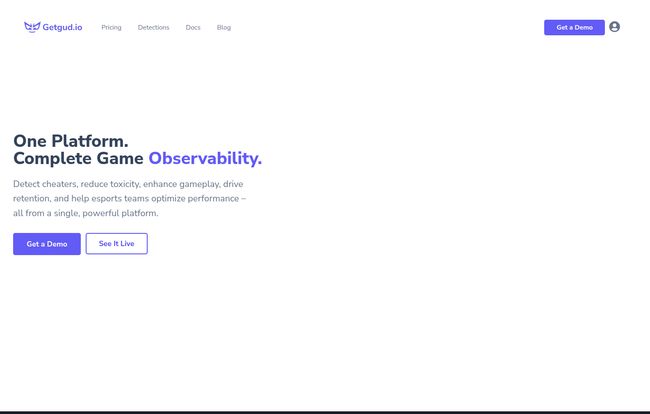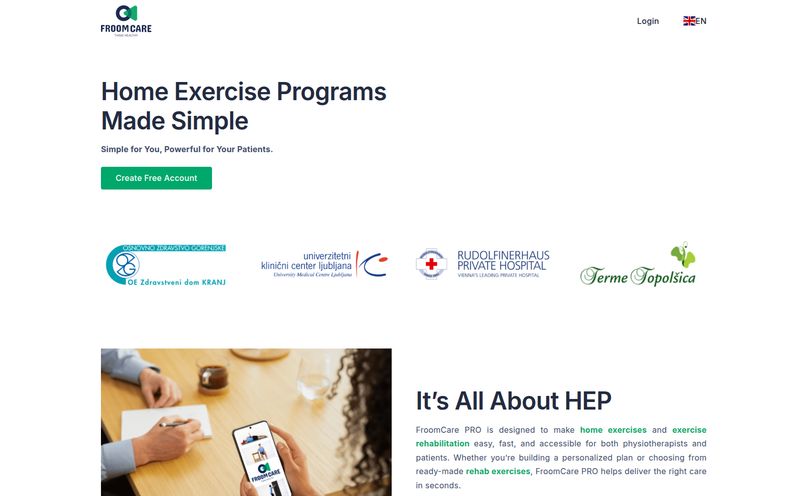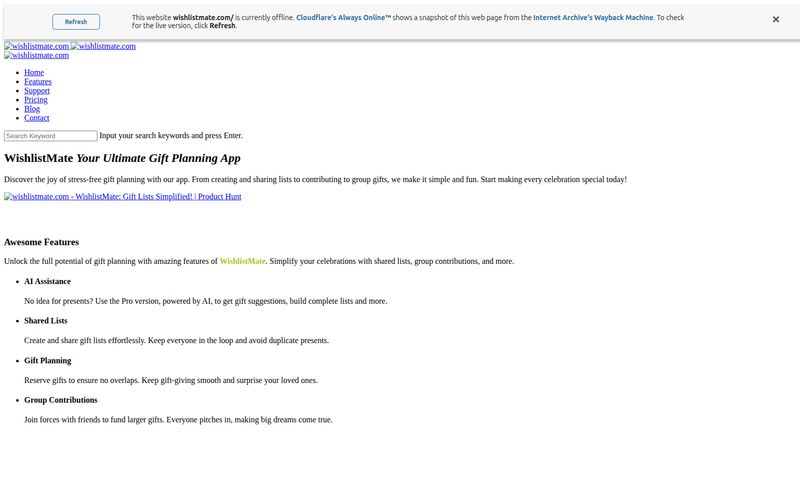If you’ve ever launched or managed an online multiplayer game, you know the headache. It’s not the server costs, not the bug reports... it's the people. Or, more specifically, the small percentage of people who seem hell-bent on ruining the experience for everyone else. Cheaters with their aimbots, griefers spamming toxicity in chat—they’re a plague. For years, the answer has been client-side anti-cheat, these hulking programs that dig into a player’s PC. And gamers... well, they kinda hate it.
So when a tool like Getgud.io comes along, my ears perk up. It promises a different path. A server-side solution that uses AI to watch gameplay and snuff out the bad apples. No invasive client software, just pure data analysis. But is it too good to be true? I’ve been in the SEO and traffic game for years, and I know that player retention is the holy grail. If your game is a toxic cesspool, your players will leave. It's that simple. So, I decided to take a closer look at what Getgud is really offering.

Visit Getgud.io
So What Exactly Is Getgud.io?
Okay, let's cut through the marketing jargon. At its heart, Getgud.io is an observability platform for your game. Think of it less like a bouncer at the door checking IDs, and more like a network of smart security cameras with a super-intelligent AI watching the footage 24/7. It integrates with your game server and just... watches. It analyzes gameplay data—where players move, how they aim, what they type—to build a profile of every single player.
The biggest, most glaringly obvious advantage here is that there is no client-side installation. Let that sink in. You don’t have to force your players to install a kernel-level driver that many view as intrusive spyware. From a marketing and player-trust perspective, that’s a massive win right out of the gate. You’re not treating every player like a potential criminal from the moment they install your game.
The Features That Actually Move the Needle
A platform is only as good as its tools. Getgud has a pretty interesting lineup that goes beyond just banning cheaters. It’s more about holistic community health.
AI-Powered Detection: Your 24/7 Game Warden
This is the core of the system. The AI is trained to spot behaviors indicative of cheating (like impossible snap-aims from an aimbot) and griefing. It even assigns a “Toxic Score” to players based on their actions and chat logs. This isn’t just a simple “yes/no” system. It’s about identifying patterns. Of course, the big question is always about false positives. No AI is perfect. But the idea is to give your moderation team a powerful tool to investigate, not just a button to blindly press.
More Than Just Bans: Actionable Gameplay Analytics
Here’s where Getgud gets really interesting for me. It’s not just an anti-cheat. It's a full-blown analytics suite. You can replay entire matches from any player’s perspective. Imagine debugging a problem or reviewing a cheater report and being able to see exactly what happened, frame by frame. You can see heatmaps, analyze player behavior on certain maps, and even get insights that could influence game balance and future level design. This transforms a cost-center (moderation) into a source of valuable development insight.
Automating the Dirty Work
Community managers are overworked. We all know this. Getgud aims to lighten that load with a system of rules and webhooks. You can set up automations. For instance, if a player’s toxic score crosses a certain threshold, the system could automatically mute their chat for 24 hours. If the AI flags a player with high confidence for cheating, it can automatically submit their profile for review. It's about taking the manual, repetitive tasks off your team's plate so they can focus on the bigger picture and more nuanced community engagement.
How The Pricing Works (And Is It Worth It?)
Let's talk money. Getgud.io uses a tiered, data-based pricing model. You’re essentially paying for the volume of gameplay data you stream to their servers for analysis. I actually like this approach—it feels more modern and scalable than a flat per-seat or per-game license.
Here’s a quick breakdown of their public plans:
| Plan | Price | Included Data (Est. Users) |
|---|---|---|
| Developer | $50 / month | 5 GB (~1,000 MAU) |
| Team | $250 / month | 30 GB (~6,000 MAU) |
| Studio | $500 / month | 70 GB (~15,000 MAU) |
| Enterprise | Let's talk (Custom) | Unlimited |
What's cool is that you have control over what data you send. If you only want to analyze competitive ranked matches and ignore casual modes to save on cost, you can. This flexibility is a big plus for an indie studio trying to keep a tight rein on its budget. The Developer plan at $50 feels like a very accessible entry point to test the waters.
The Good, The Bad, and The Server-Side
No tool is a silver bullet. In my experience, its always about tradeoffs. The biggest plus for Getgud is creating a safer, less toxic game environment which directly impacts player retention and your bottom line. Doing this without a heavy client-side install is the cherry on top. The actionable insights from gameplay data are more than just a bonus; they can actively help you make a better game.
On the flip side, this isn't a plug-and-play solution. It requires integration with your game server, which means development time and resources. The effectiveness also hinges entirely on how good their AI models are, and there's always a risk of false positives that could anger legitimate players. The data-based pricing, while flexible, could also become unpredictable if your game suddenly sees a massive spike in players.
So, Who Should Give Getgud a Shot?
I think Getgud.io sits in a really sweet spot for a few groups. Indie developers and small-to-mid-size studios making competitive FPS games are the prime audience. They feel the pain of toxicity the most and often lack the resources to build a massive, in-house moderation team. For them, a tool like this could be a game-changer.
Esports organizers could also get a ton of value from the replay and analysis tools for ensuring competitive integrity. For massive AAA studios with their own proprietary anti-cheat systems, it might be a harder sell, but they could still use it for its player behavior and toxicity analysis features.
Frequently Asked Questions
How can Getgud.io detect cheats without a client on the user's PC?
It analyzes the data stream coming from the player to the server. It looks for statistical impossibilities and behavioral patterns. For example, it can detect if a player's aim snaps to a head faster than a human possibly could, or if their view consistently tracks players through walls—data that is visible on the server side.
Is it difficult to integrate Getgud.io into my game?
It requires server-side development work. It's not a simple switch you flip. Your game's server needs to be configured to stream the relevant gameplay data to Getgud's platform. The level of difficulty depends on your game's architecture, but it's a real development task to plan for.
What about false positives? Won't it ban innocent pro players?
This is a valid concern with any AI-based system. Getgud focuses on providing evidence and confidence scores rather than just outright banning. The idea is to empower a human moderator to make the final call with all the evidence—including match replay—at their fingertips. It's a tool to assist, not completely replace, human judgment.
Does this only work for FPS games?
While the platform is heavily optimized and marketed for FPS games (since that's where aimbots and wallhacks are most common), the underlying technology of analyzing gameplay data for behavioral patterns could theoretically be adapted to other competitive genres like MOBAs or sports games.
Is my game and player data safe with Getgud.io?
Getgud operates as a SaaS platform, so you are entrusting them with your gameplay data. Like any B2B service, you'd want to review their security and data privacy policies. However, since it's server-side, it's not accessing any personal files on a player's computer, which is a significant privacy advantage over client-side solutions.
Final Thoughts: A Step in the Right Direction
I'm genuinely optimistic about tools like Getgud.io. For too long, the war on cheating has been an arms race of intrusive software that punishes the 99% of honest players. Shifting the focus to server-side data analysis and holistic player behavior feels like a more intelligent, respectful, and modern approach.
It's not perfect, and it won't magically solve all your community problems. But it’s a powerful new kind of weapon in the arsenal for developers who care about building healthy, long-lasting communities. For my money, creating a game where players want to stick around is the best traffic and retention strategy there is. And if a tool can help you do that while respecting your players, it’s absolutely worth a serious look.



